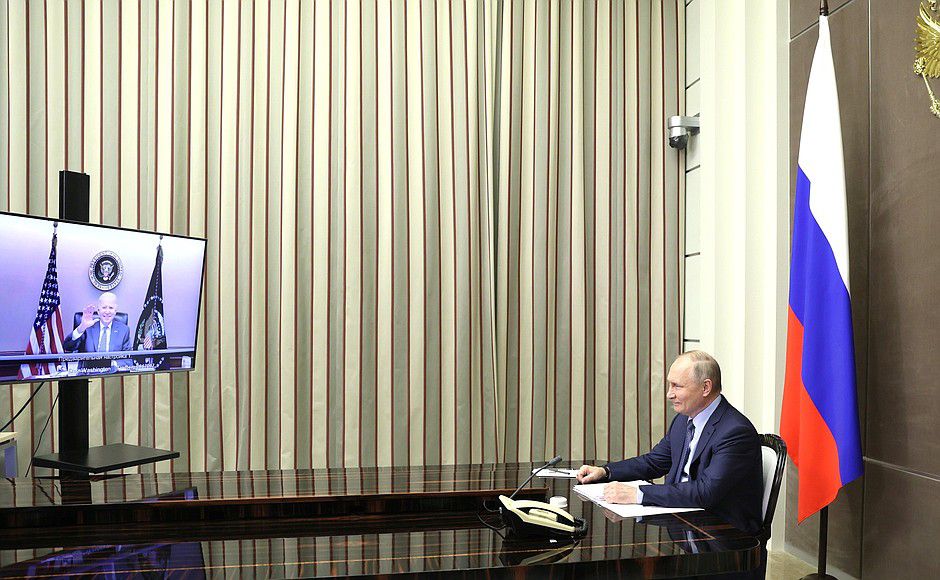House Democrats on Tuesday introduced a bill that would allow the Senate to raise the debt ceiling with a simple 51-vote majority — rather than the 60 votes required to overcome a legislative filibuster threshold — allowing Congress to avert the possibility that the United States will default on its debts for the first time in its history.
Senate leaders are working to get their caucuses on board, with Minority Leader Mitch McConnell, R-Ky., saying that he is “confident” he will have the votes necessary to pass the bill, a temporary exception to the filibuster to allow Democrats to raise the debt ceiling.
Treasury Secretary Janet Yellen has urged Congress to quickly take action, saying that the debt limit could be reached by Dec. 15. Yellen has previously warned that a default could result in “catastrophic” consequences for both the U.S. and the global economy, as well as stock markets.
The debt limit measure will be attached to a bill that will block cuts to Medicare and extend provisions to the national health insurance program — a much more palatable vote for Republicans than attaching it to the annual military spending bill, National Defense Authorization Act (NDAA), which could have made for a trickier scenario to get passed.
The rule would allow all 50 Senate Democrats to vote to raise the debt ceiling, with Vice President Kamala Harris breaking the deadlock in the evenly divided chamber.
“I’m confident this particular procedure coupled with the avoidance of Medicare cuts will achieve enough Republican support to clear the 60-vote threshold,” McConnell said.
“Once the Senate has passed the legislation lifting the debt limit, the House will take up that bill and send it to the President,” House Speaker Nancy Pelosi pledged in a letter to her caucus.
McConnell said Tuesday that the debt ceiling deal that he hashed out with Majority Leader Chuck Schumer, D-N.Y., is “good for the country” as well as “good for Republicans.”
“I think this is in the best interest of the country by avoiding default,” McConnell said, pushing back on assertions that he reversed his earlier stance that Republicans would not aid Democrats in raising the debt ceiling.
Previously, Senate Republicans urged Democrats to go it alone on the debt limit hike, saying in October after they helped Democrats pass a short-term extension that they would not do so again. But Schumer and McConnell have been privately hashing out an agreement on the debt limit for the last several weeks.
“The red line is intact,” McConnell said. “The red line is that you have a simple majority, party-line vote on the debt ceiling. That’s exactly where we will end up.”
McConnell said that a vote on the measure will come Thursday. The House will consider the measure on Tuesday.
A number of prominent Republicans have signaled they’re on board with the plan, which will force Democrats to raise the debt ceiling on their own.
“I would expect to be able to be for it,” Missouri Sen. Roy Blunt, a member of the Republican leadership team, said.
“Everybody is hearing a lot from hospitals at home about the importance of solving this Medicare problem,” Blunt said. “And so maybe, hopefully, a bigger vote.”
“I’m going to support having the Democrats raise the debt ceiling without any Republican votes,” Texas Sen. John Cornyn said. “It accomplishes the goal of having Democrats raise the debt ceiling be held politically accountable for racking up more debt.”
“They want to own this massive increase in the debt that’s going to accommodate all the new spending they want to do,” South Dakota Sen. John Thune, the Republican Whip, said of Democrats. “We think that’s a perfectly appropriate way to handle this.”
Congress has raised the debt limit — which does not authorize new spending — several times in recent years, under both Democratic and Republican control of both the White House and Congress. For example, Democrats joined Republicans three times under former President Donald Trump in hiking the limit.
“Addressing the debt limit is an imperative: for families, we must prevent a loss of millions of jobs and trillions in household wealth and drastic increases in interest for car loans, student debt, mortgages, credit card bills and other types of borrowing,” Pelosi wrote in a statement. “For the American economy, we must address the debt limit to stave off an unnecessary and catastrophic drop of trillions of dollars of GDP and a devastating downgrade to our credit rating. And for the global economy, we must act to prevent a massive drop in the value of the dollar, with capital flowing away from the U.S. economy, lower global trade and shockwaves being sent through other economies.
“Let us remember that addressing the debt limit is not about future spending,” she added. “This is about meeting obligations that the government has already incurred, largely during the Trump Administration. Only three percent of the current debt has been accrued under President Biden.”
Some Republicans expressed skepticism despite McConnell’s confidence, including Idaho Sen. Mike Crapo, who said he has “concerns” about the plan, and Iowa Sen. Joni Ernst, who simply said “we’ll see what happens.”




